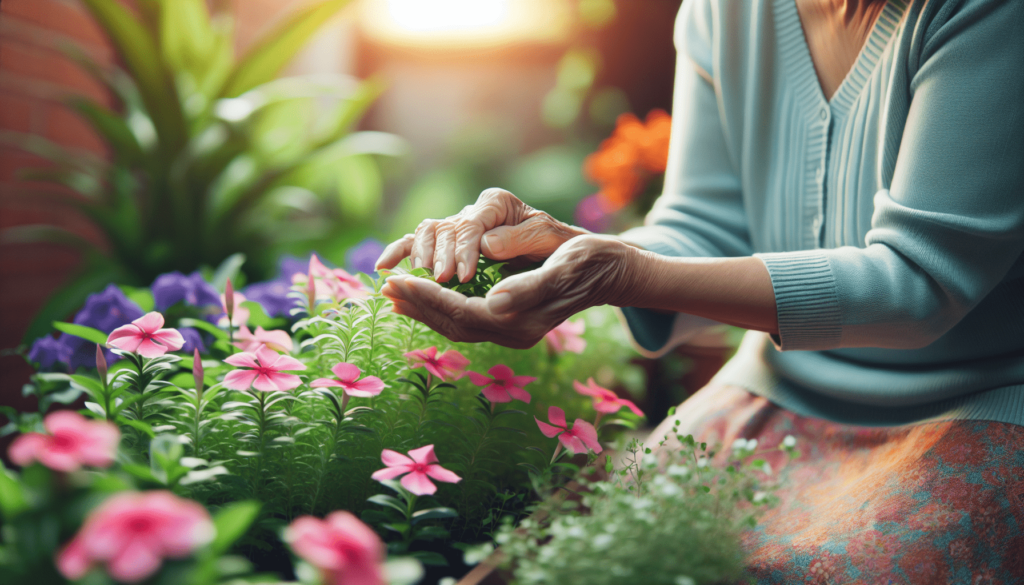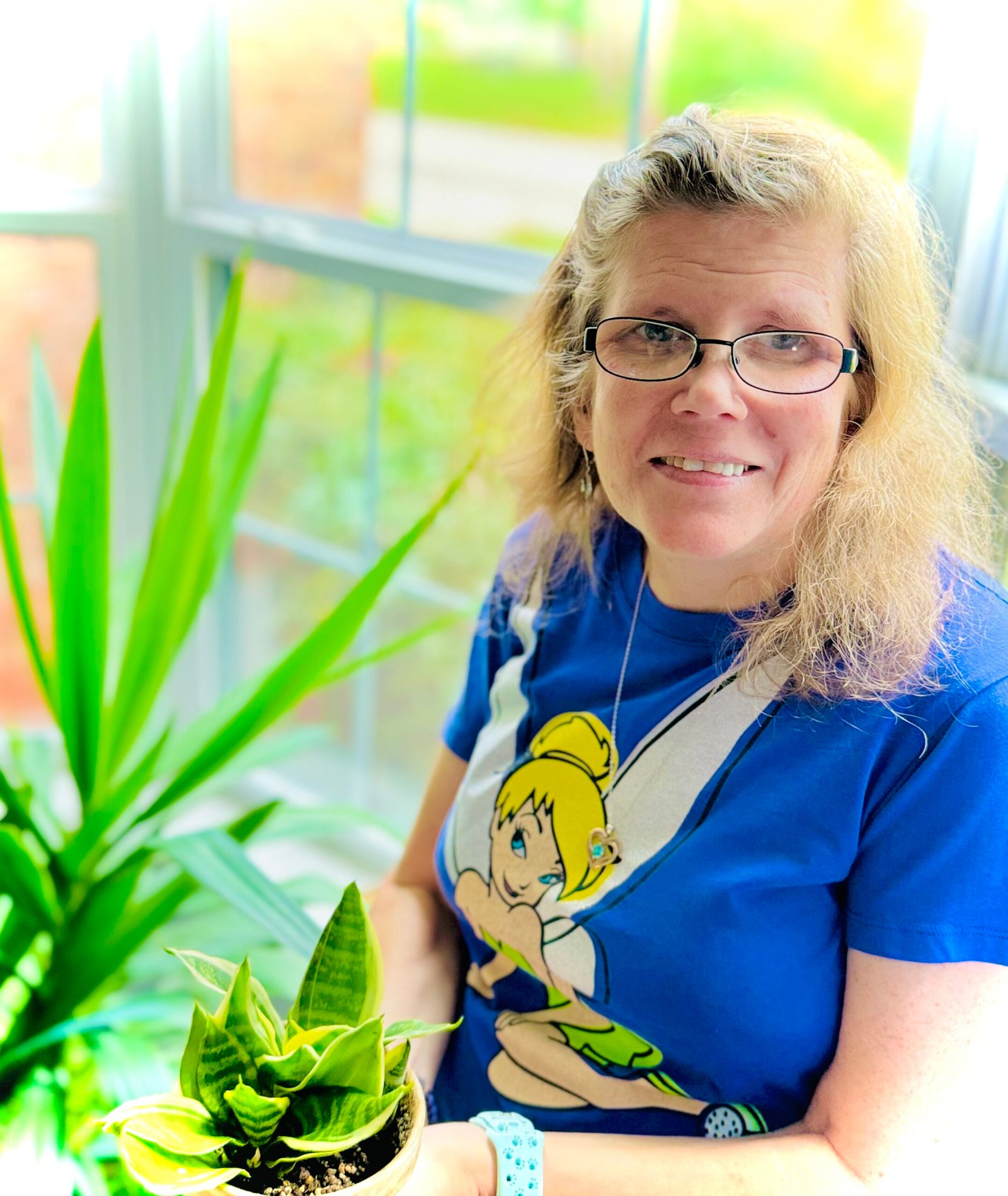Have you ever stopped to think about the healing power of nature and how it can enrich your daily life? Imagine the perks of integrating therapeutic gardening into your routine, especially as you age. Gardening is more than just a hobby for seniors; it’s a path to improved physical health, mental well-being, and social interaction. When you put your hands in the soil, you’re not just planting seeds; you’re sowing the roots for a more fulfilling life.
Introduction to Therapeutic Gardening
Therapeutic gardening is a practice where gardening activities are tailored to fit the physical and psychological needs of seniors. It’s not about achieving botanical mastery but nurturing a connection with nature to enhance your overall well-being. Whether you’re tending to flowers, growing vegetables, or simply enjoying the serene beauty of a garden, the benefits are abundant.
The Concept of Therapeutic Gardening
Therapeutic gardening involves customizing gardening tasks to suit your abilities and needs. This approach ensures that you can engage in meaningful activities without overexerting yourself. It’s an inclusive, adaptable practice that transforms a simple garden into a sanctuary of healing and relaxation.
Importance for Seniors
As you age, maintaining physical activity and mental stimulation becomes crucial. Engaging in therapeutic gardening offers a gentle yet effective form of exercise, stimulates cognitive functions, and provides a purposeful routine. Additionally, it encourages social interactions and fosters a sense of community, combating loneliness and isolation that seniors might experience.
Physical Benefits of Gardening
Gardening is a delightful way to keep your body active and healthy. It’s a low-impact exercise that can be modified to fit your physical capabilities.
Improving Physical Health
From weeding to planting, every gardening task involves different muscle groups, enhancing your strength, flexibility, and endurance. Regular physical activity in the garden aids in maintaining a healthy weight, reducing the risk of chronic diseases like heart disease, diabetes, and hypertension.
Enhancing Mobility and Flexibility
Gardening engages various motions such as bending, stretching, and lifting. These activities improve your coordination and motor skills. If you experience arthritis or joint pain, gardening can offer relief through gentle, consistent movement, keeping your joints flexible and reducing stiffness.
Boosting Immune System
Interaction with soil exposes you to beneficial bacteria that can enhance your immune system. Spending time outdoors also ensures a good dose of vitamin D from sunlight, which is vital for bone health and immune function.

Mental and Emotional Benefits
The calming effects of nature can have profound impacts on your mental and emotional well-being. Gardening provides a range of psychological benefits, helping you maintain a positive and balanced mood.
Reducing Stress and Anxiety
Gardening acts as a natural form of stress relief. Engaging in gardening tasks allows your mind to focus on the present moment, reducing feelings of anxiety and promoting relaxation. The rhythmic activities of planting and tending to plants can have meditative effects, providing a peaceful escape from daily worries.
Enhancing Cognitive Function
Participating in gardening activities stimulates cognitive processes, helping to keep your mind sharp. Tasks such as planning a garden layout, measuring growth, and problem-solving can enhance memory, attention, and critical thinking skills. For seniors, this can be a valuable tool in mitigating age-related cognitive decline.
Promoting Emotional Well-being
Gardening fosters a sense of accomplishment and purpose. Witnessing plant growth from seedlings to mature plants can be incredibly rewarding, boosting your self-esteem and confidence. Additionally, the act of nurturing life in your garden can instill a sense of responsibility and care, contributing to emotional well-being.
Social Benefits of Gardening
Gardening can be a social activity that helps you connect with others, building and strengthening relationships. It fosters a sense of community and belonging.
Building Community Connections
Engaging in community gardening projects or joining gardening clubs can expand your social network. Shared gardening spaces create opportunities to meet new friends and socialize, combating feelings of loneliness and isolation. You can exchange tips, share experiences, and enjoy the companionship that comes from a common interest.
Opportunities for Intergenerational Interaction
Gardening can be an excellent way to bond with different generations. Grandparents and grandchildren can enjoy gardening together, sharing knowledge and creating cherished memories. This intergenerational interaction helps bridge generational gaps, fostering mutual respect and understanding.

Designing a Therapeutic Garden
Creating a therapeutic garden tailored to your needs involves thoughtful planning and design. The goal is to develop a space that is both functional and soothing, promoting accessibility and comfort.
Accessible Garden Layout
Design your garden with accessibility in mind. Raised garden beds, vertical gardens, and container gardening can make it easier to tend to plants without excessive bending or kneeling. Pathways should be wide, smooth, and free of obstacles to accommodate mobility aids like walking sticks or wheelchairs.
Sensory Elements in the Garden
Integrate sensory elements to make the gardening experience more enriching. Fragrant flowers, textured plants, and visually stimulating colors can engage your senses, making the garden a more vibrant and rewarding space. Consider adding features like water fountains or bird feeders to attract wildlife, enhancing the sensory appeal and tranquility of your garden.
Comfortable Seating and Shade
Ensure your garden includes comfortable seating areas where you can rest and enjoy the surroundings. Shaded areas are essential to protect from excessive sun exposure, particularly during hot weather. A pergola, gazebo, or strategically placed umbrellas can provide necessary shade, creating a comfortable retreat.
Garden Tools for Seniors
Using the right tools can make gardening tasks easier and safer. Ergonomic tools designed for seniors reduce strain on your hands and joints, making gardening more enjoyable.
Essential Gardening Tools
Here’s a table of essential gardening tools that are senior-friendly:
- MAKE GARDENING EASIER – Extension poles can be easily installed to reach about 28-32″ long overall, these mid-length gar…
- 5 FUNCTIONAL GARDENING HAND TOOLS – garden tool set includes 2 trowels, a cultivator claw, a hand weeder, pruning shear….
- STRONG & DURABLE – Combined with the practicality and strength of metal, these essential gardening tools are highly resi…

- 【3pcs garden too set】 All you need to give your garden the best start. Ideal for a variety of tasks including digging, w…
- 【Ergonomic & Comfortable】The padded ergonomic soft-grip ergonomic handles provide exceptional grip and are comfortable t…
- 【Heavy Duty & Durable】Heavy Duty Stainless Steel high hardness, durable, not easy to rust and broken.Rust-proof, extreme…
- Ergonomic Design: Bernini’s Garden Tool Set features a unique vertical grip, providing comfort and ease for all gardener…
- Comprehensive Set: This gardening kit comes with all the essential hand gardening tools you need, including a durable ha…
- Enhanced Power: Engineered to transfer arm strength directly into the tool, these garden hand tools maximize efficiency …
- Quality Blades – Professionally built utilizing SK-5 Steel that meets the highest standards and gives you precision on e…
- Handle – Made of Hidh Quality chrome vanadium steel, and the special reinforced design makes the shears stronger and pow…
- Effortless Design – The ratcheting mechanism’s settings multiply your hand’s power by up to 3 times. As you cut through …

| Tool | Description | Benefits |
|---|---|---|
| Ergonomic Hand Tools | Tools with padded handles and easy-grip designs | Reduce strain on hands and wrists, minimize discomfort during use |
| Lightweight Rakes | Lighter rakes that are easy to maneuver | Easier to handle, reducing fatigue while raking leaves or soil |
| Kneeling Pads | Cushioned mats for kneeling | Protect knees and provide comfort while working at ground level |
| Long-handled Tools | Tools with extended handles | Reduce the need for bending, making it easier to reach plants without straining |
| Garden Carts | Wheeled carts for transporting soil, plants, and tools | Make it convenient to move heavy items around the garden, minimizing physical exertion |
Safety Measures
Safety is paramount in ensuring a fulfilling gardening experience. Wearing gloves, hats, and protective clothing can prevent injuries and sun exposure. Staying hydrated, taking regular breaks, and avoiding gardening during extreme weather conditions are essential practices to keep in mind.
Adapting Gardening Activities
Adapting gardening activities to fit your physical abilities ensures that you can continue enjoying gardening without risk of injury or discomfort.
Modifying Tasks for Physical Limitations
If you face physical limitations, modify gardening tasks to accommodate your needs. For example, choose lightweight pots instead of heavy ones, and opt for container gardening if you find in-ground gardening too challenging. Using raised beds can make planting and weeding easier, reducing strain on your back and knees.
Timing Gardening Activities
Plan gardening activities during cooler parts of the day, such as early morning or late afternoon, to avoid excessive heat. Break tasks into manageable segments, allowing yourself sufficient rest in between to prevent fatigue.
Utilizing Adaptive Equipment
Adaptive gardening equipment, such as long-reach tools, garden stools, and ergonomic hand tools, can make gardening more accessible. These tools are designed to reduce physical strain and make gardening tasks easier to perform.
Case Studies: Success Stories of Seniors
Hearing about success stories of fellow seniors can inspire and motivate you to start or continue your own gardening journey.
Lucy’s Garden: A Story of Renewal
Lucy, a 75-year-old retiree, found new life through gardening. After moving to a retirement community, she discovered the community garden and decided to give it a try. Starting with a small plot, Lucy grew flowers and vegetables, forging new friendships with fellow gardeners. Gardening not only improved her physical health but also provided her with a renewed sense of purpose and joy.
John’s Journey: Gardening as Therapy
John, an 80-year-old widower, struggled with loneliness after losing his spouse. His daughter introduced him to therapeutic gardening through a local gardening club. John began with container gardening, gradually expanding his interests to a small backyard garden. The routine of gardening offered John solace and peace, helping him cope with grief and connect with new friends in the club.
Tips for Getting Started
Getting started with therapeutic gardening might seem daunting, but with some tips and guidance, you can embark on a rewarding journey.
Start Small
Begin with a small, manageable space to avoid feeling overwhelmed. Focus on a few plants or a small garden bed, gradually expanding as you become more comfortable and confident.
Choose Low-maintenance Plants
Select plants that are easy to grow and require minimal maintenance. Herbs, perennials, and succulents are excellent choices. They thrive with minimal care and provide beautiful, rewarding results.
Join a Gardening Group
Look for local gardening groups or community gardens. Joining a group can provide valuable support, resources, and social connections. You’ll have the opportunity to learn from others and share your experiences.
Educate Yourself
Read books, attend workshops, or take online courses on gardening techniques. Gaining knowledge will boost your confidence and help you make informed decisions in your gardening endeavors.
Conclusion
Gardening is more than just an activity; it’s a source of healing and joy. Whether you are looking to improve your physical health, boost your mental clarity, or connect with others, therapeutic gardening offers limitless benefits. As you immerse yourself in the beauty and tranquility of a garden, you are nurturing not only plants but your well-being, finding a renewed sense of purpose and serenity. So why not cultivate a garden of happiness today? The gifts of nature await you, ready to transform your life one plant at a time.

My name is Michelle Warren, and I’m the founder of Peaceful Gardening. As a 10-year breast cancer survivor, I’ve discovered the profound therapeutic power of gardening. This journey has not only helped me recover but has also become my passion and a source of ongoing peace and joy.
Peaceful Gardening was born from my desire to share the healing benefits of gardening with others. Whether you’re facing health challenges, dealing with stress, or simply looking to connect more deeply with nature, this space is for you.
Over the past decade, I’ve cultivated not just plants, but a deep understanding of how gardening can positively impact mental health. I’ve worked with local community gardens, led workshops on mindful gardening practices, and collaborated with mental health professionals to develop gardening-based stress reduction programs.
Peaceful Gardening was born from my desire to share the healing benefits of gardening with others. Whether you’re facing health challenges, dealing with stress, or simply looking to connect more deeply with nature, this space is for you.
Here, you’ll find evidence-based advice on using gardening as a tool for mindfulness, stress relief, and emotional healing. I share personal stories, practical tips, and scientifically-backed information on how to create your own therapeutic garden space, no matter the size of your yard or balcony.
My mission is to help you discover the joy, peace, and healing that comes from nurturing plants and connecting with nature. Join me in exploring how the simple act of tending to a garden can transform your mental and emotional wellbeing.
Welcome to Peaceful Gardening – let’s grow together towards better mental health!”




